Chief Executive Carrie Lam has defended the Hong Kong police for their use of force, and again voiced criticism of recent protests.
On Monday, protesters conducted a peaceful mass sit-in at the airport condemning alleged police brutality, leading the airport to cancel flights from late afternoon.
On Sunday, the Hong Kong police fired tear gas inside Kwai Fong MTR station and shot protesters at close range at Tai Koo MTR station. Some officers were disguised as protesters, as one protester had her right eye ruptured, apparently caused by a bean bag round fired by police in Tsim Sha Tsui.
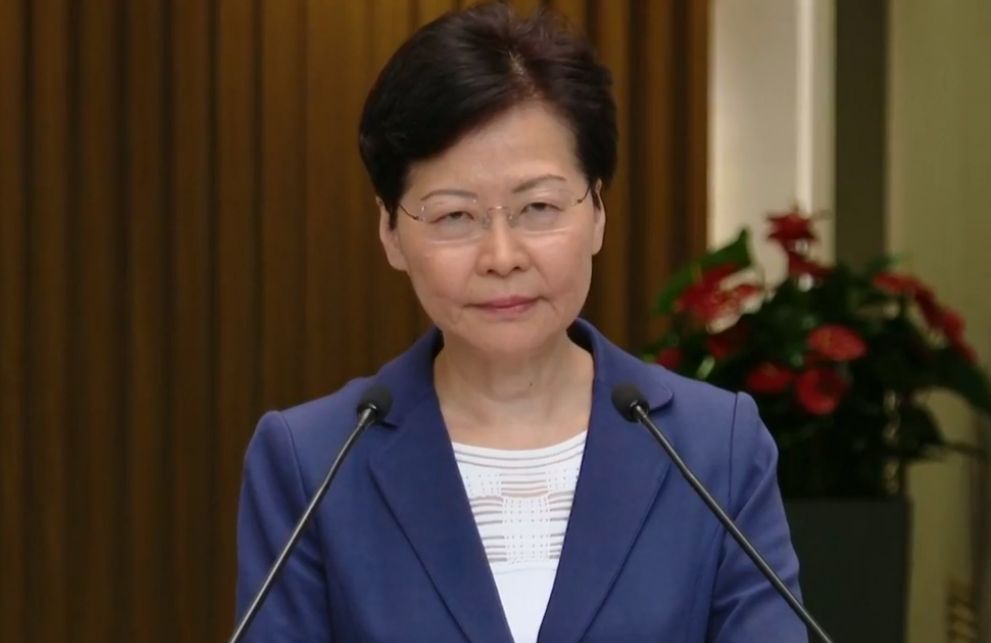
When asked about controversies over the police, Lam claimed that many commentaries were not based on evidence. Lam was stopped multiple times by reporters, who said she did not answer the question.
Lam said the police have to consider many factors in their operations, when asked about using tear gas being used inside an MTR station. The police have had a very difficult time in the past two months in enforcing the law and ensuing law and order in Hong Kong, she said.
“Police operations could not be determined by someone like myself who’s outside the police. Especially, when policemen have to make on-the-spot judgment of what will be the best interest and the safety of people around during that particular situation.”
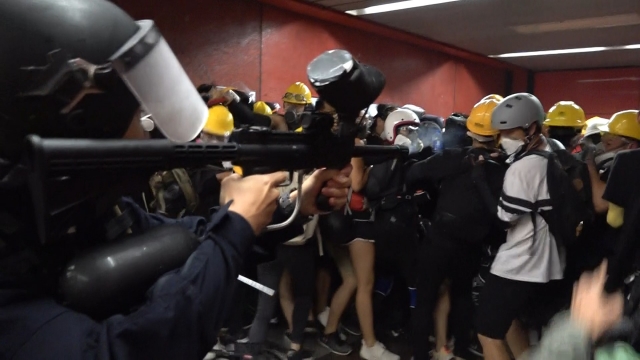
“The police have their code of practice to follow. The police have their rigid and stringent guidelines in the use of appropriate force, and that requires the lowest level of force in dealing with those situations,” she said, before she was stopped by reporters again.
Lam said she hoped the protester who sustained the eye injury will recover: “But I hope she will report the case to the police, or she could talk to me,” she said. “When it is convenient, I am very willing to visit this young girl.”
Lam said she would not instruct the police over their operations, and said the police decoy operation was a special case in order to arrest “core extreme protesters.”
“You can’t say the police were doing something wrong,” she said.
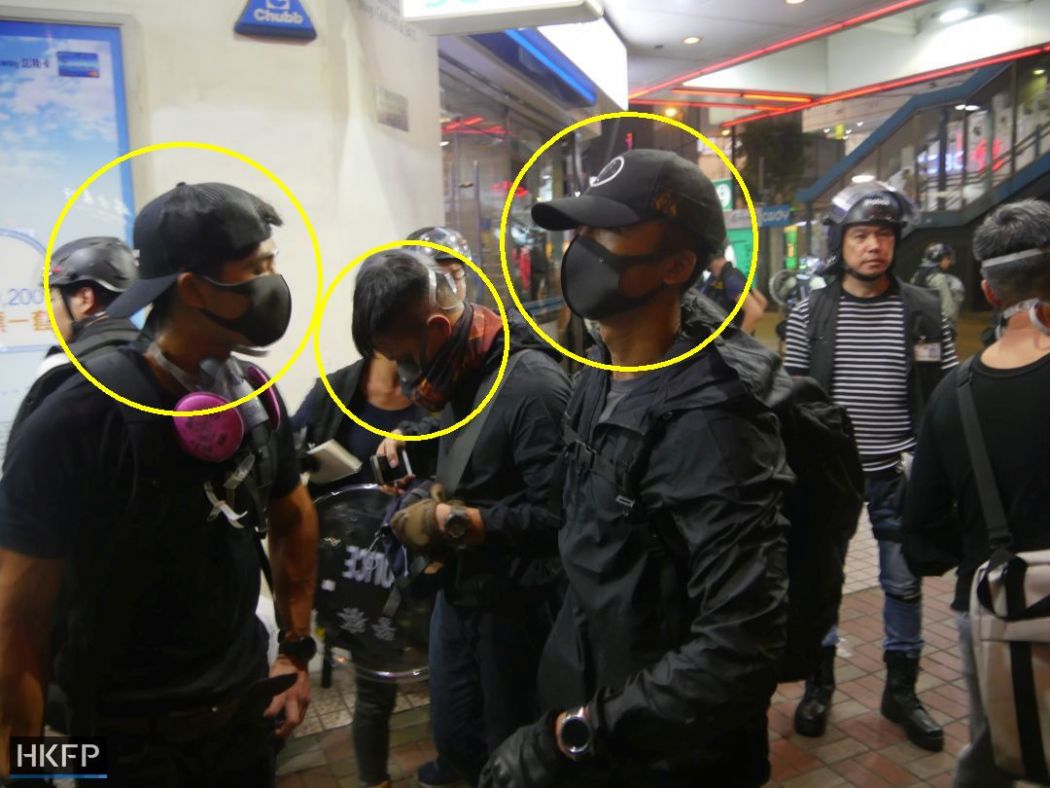
Asked if Lam has the autonomy to withdraw the extradition bill or set up an independent commission of inquiry, Lam did not give a straight answer, saying that she had answered the question.
She said that protesters had stopped traffic, train services and flights in protest. On one day, the MTR had two million fewer passengers, she said. She also said that protesters had attacked police officers, their families and police stations, as well as the principle of the rule of law.
“We have heard a lot of hate speech against the police… This is not beneficial to Hong Kong at all. The 30,000-strong police force is the pillar of the rule of law in Hong Kong.”
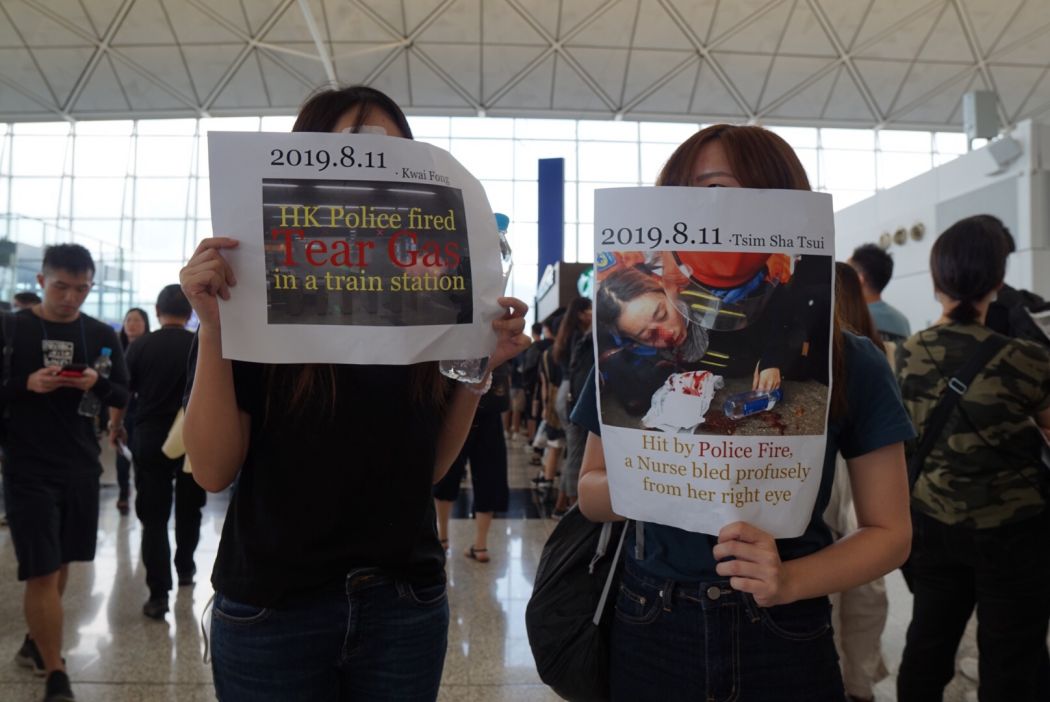
As she urged the public to rethink the current situation, Lam appeared to be emotional.
“Are you cold-hearted enough to push Hong Kong into this deep abyss that will crush us?” she said.
Journalists shouted questions including “many residents asked you when will you die?” “do you have a conscience?” when Lam left, without receiving an answer.
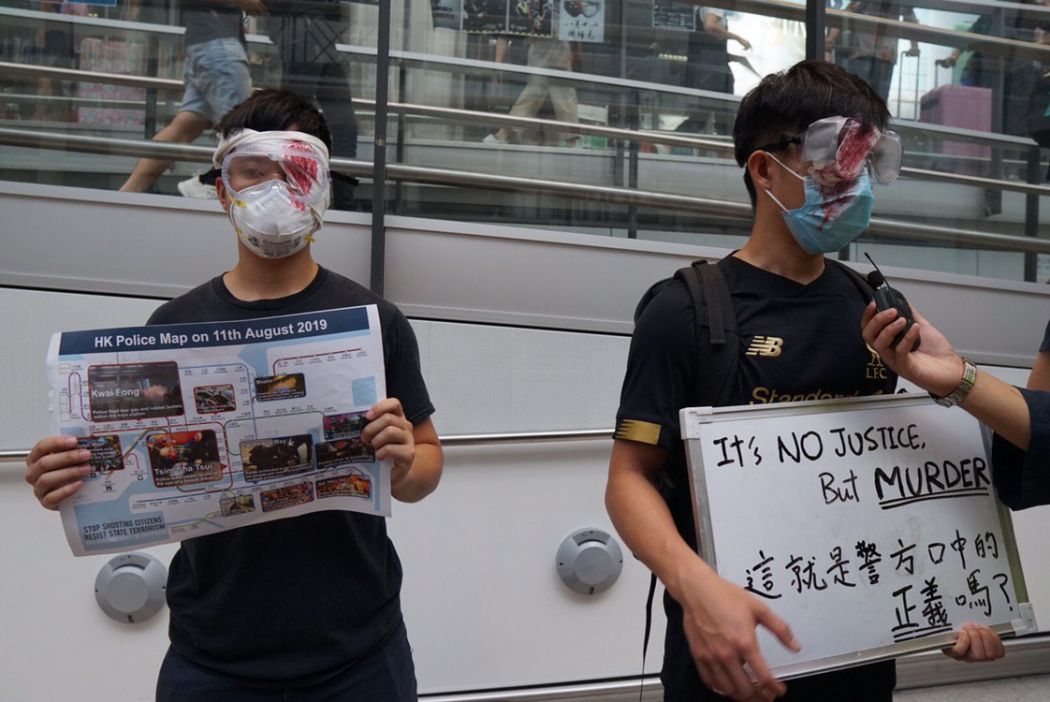
Members of the League of Social Democrats protested outside the meeting. Some covered their right eye in mock blood in protest.
“Long Hair” Leung Kwok-hung, the party’s former lawmaker, said Carrie Lam failed to set up an independent commission of inquiry to investigate what has happened since June, despite the idea receiving wide public support.
“Do you even have a conscience?” Leung asked Lam when she entered the chief executive’s office.
The city has been roiled by over two months of protests related to a now-suspended extradition bill. China on Monday described unrest in Hong Kong as a sign of “terrorism emerging.
